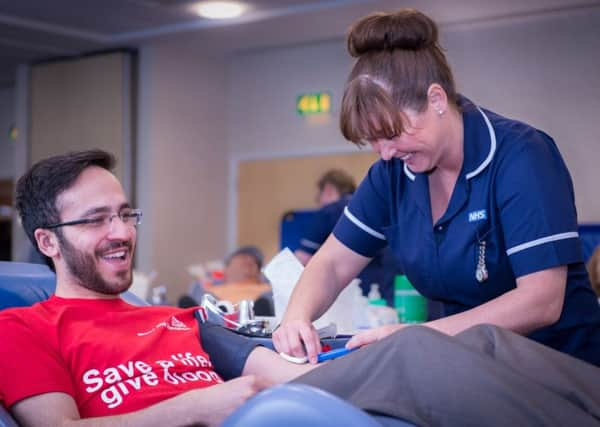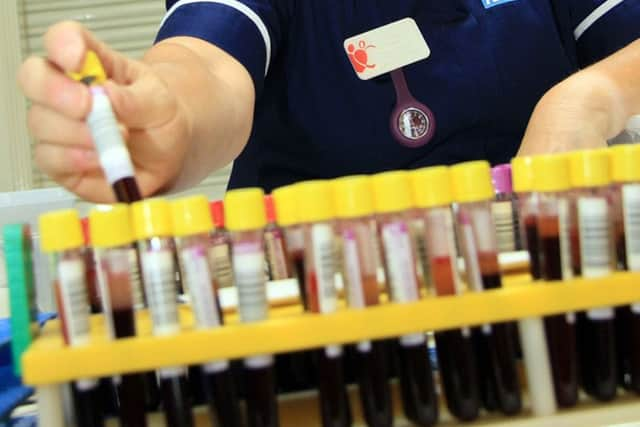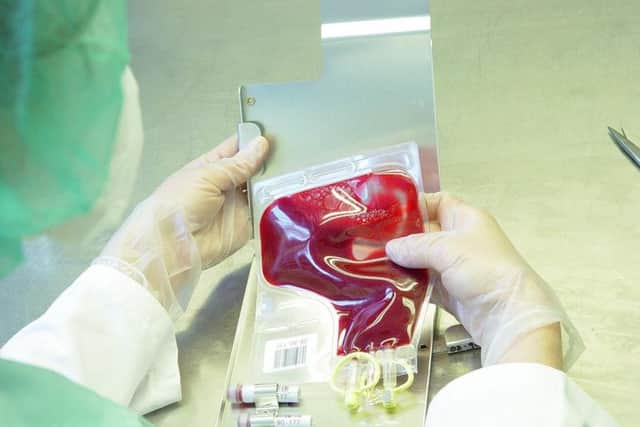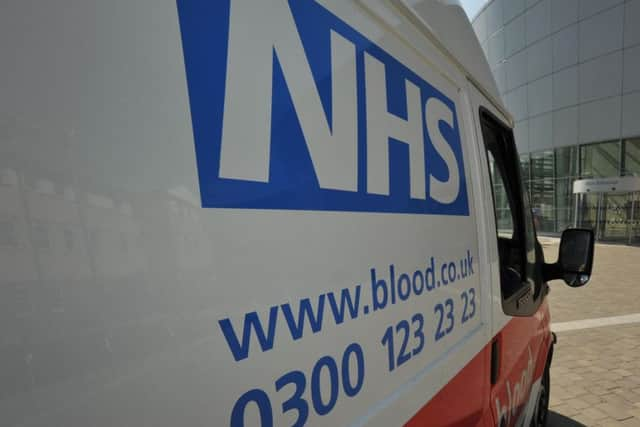FEATURE: As national blood stocks dip for the summer - make a date to donate


It might not be the most pleasant item on your summer to-do list, but the truth is that - with many of us packing our bags and heading off for a well-deserved break in the coming weeks - national blood stocks are set to take a noticeable dip.
“It always happens this time of year,” says Amanda Eccles, senior marketing coordinator for NHS Blood & Transplant in the north.


Advertisement
Hide AdAdvertisement
Hide Ad“The weather is nice and warm, people get busy or they’re away on holiday or visiting friends. But even when life gets busy for the rest of us, blood is always needed. Hospitals in England rely on around 6,000 units a day to treat patients. We’re asking people in South Yorkshire to please add ‘make a date to donate’ to their checklists this summer.”
And even without the summer dip, the NHS is under pressure to procure 200,000 new donors each year to replace those who can no longer donate, for reasons such as ill health or pregnancy.
“In the last 12 months, we’ve received 14,200 blood donations in Sheffield alone,” says Amanda.
“That’s a really great figure, and we have some wonderful committed regular donors in this area, but we’re always seeking new regular donors to make up for those who can no longer donate. Plus we have to ensure that we have the right mix of blood groups to match patients needs in the future.


Advertisement
Hide AdAdvertisement
Hide Ad“At the moment, we particularly need people with blood groups O negative, B negative, AB negative and A negative to come forward, as well as people from Black and South Asian communities.
“The blood you give is so precious and we plan our sessions so that patients always get the blood they need.”
NHS Blood and Transplant is a joint England and Wales Special Health Authority, responsible for ensuring a safe and efficient supply of blood to the NHS in England - around 1.6m units of blood each year.
Amanda says: “We are an essential part of the NHS and we take pride in saving and improving lives by making the most of every voluntary donation, from blood and organs to tissues and stem cells. Our work would not be possible without our donors - ordinary people doing extraordinary things by saving and improving the lives of others.


Advertisement
Hide AdAdvertisement
Hide Ad“And overall, the demand for blood is falling by 3-4 per cent per year. This is due to improvements in clinical practice and is a trend that is being seen around the world. The drop in demand for blood is also thanks to our work with hospitals to ensure blood is used appropriately for patients.”
And your donation can go further than you even realise. The one pint of blood taken from you on a regular visit can help up to three people, and platelet donors can help three adults or as many as 12 children each time they donate.
“Donating platelets is a bit more of a commitment,” says Amanda.
“We use a machine which extracts your blood, separates the platelets and puts the red blood cells back into your body. The appointment can take a couple of hours, but the platelets we take can be used to treat seriously ill cancer patients and people with severe traumatic bleeding.


Advertisement
Hide AdAdvertisement
Hide Ad“Plus, unlike blood donation, which can be done every three-to-four months, platelet donation can be done every couple of weeks.”
Amanda says those attending for their first blood donation appointment can expect to spend about an hour at the donor centre.
“There are a few basics we need to check - all donors must weigh at least 7st 12, be aged between 17 and 66, and be fit and healthy. Don’t attend an appointment if you’ve just had an infection or have a cold and, if you’ve had any antibiotics, wait a couple of weeks.
“You’ll be asked a few questions and given a quick donor healthcheck, which is just a list of tickboxes. Obviously, there are some people who can’t donate, and we have an extensive list of anything that would prohibit a donation or our website. After the healthcheck, you’ll be taken to a bed, and given some fluids before a needle is inserted in your arm to draw the blood. This should only take five or ten minutes and, while it’s the thing most people worry about, it shouldn’t hurt at all. We take one pint, which your body regenerates quickly, then you’ll be taken to the rest area where we give you tea and biscuits.
Advertisement
Hide AdAdvertisement
Hide Ad“The blood we take from you has a shelf life of about 35 days, so it will be put to use quickly.”
So the message is simple - have fun this summer, but remember to add ‘save a life’ to your busy ‘to do’ list.


BECOME A DONOR
Sheffield’s blood donor centre is located at Cathedral Court on Church Street. Appointments can be made by calling 0300 1232323 or via the mobile app, which can be downloaded from the app store - simply search NHSGiveBlood
“It is important that, if you realise you cannot attend your appointment, you cancel it,” said Amanda.
Advertisement
Hide AdAdvertisement
Hide Ad“This will enable us to give that appointment to somebody else.
“Around half of all our current donors are aged over 45. That’s why we need more young people to start giving blood, so we have enough for the future.”
Visit Give Blood for more information on who can donate, why you should donate and the donation process.